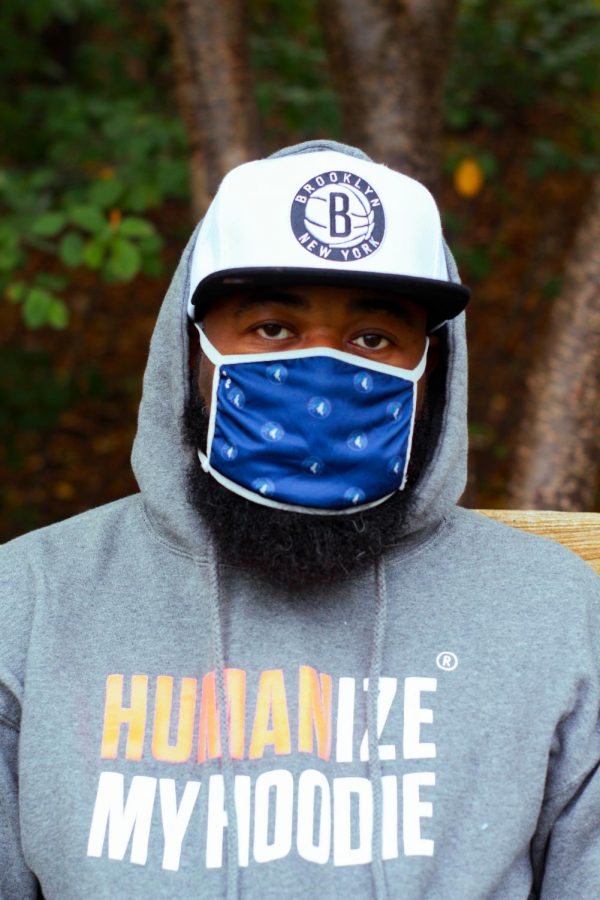“Hamline’s very own abolitionist”
Professor Jason Sole talks about his life and journey to becoming an educator.
Ali Kimball
Sole is an adjunct professor and active civil servant in the Twin Cities.
October 7, 2020
If you picked up last month’s issue of the St. Paul newspaper “The Monitor”, you might have seen Hamline University’s very own adjunct professor in the criminal justice department, Dr. Jason Sole, featured in an article titled “Modern Day Abolitionist.”
The piece sparks a narrative that hits home in the Twin Cities: the abolition of the police.
Sole characterizes himself as a “humble servant” to the people and community of St.Paul and Minneapolis. Specifically, to marginalized and disenfranchised demographics.
Growing up in the south side of Chicago during the War on Drugs era, young Jason Sole turned to gang activity.
In his appearance at the 2018 “Guns Down St.Paul” event, accessible on YouTube, Abolitionist Sole brings awareness to the factors that influence young people to join gangs, most notably young black and brown men.
Sole’s father was a Heroin addict and was absent for much of his son’s upbringing.
In combination with the extreme poverty and criminal activity in the southside of Chicago, this vacant role model contributed to Sole’s descent into the life of gang affiliation.
In a panic for her child’s life, his mother sent him to live with relatives and finish high school in Waterloo, Iowa.
“This was my first time experiencing racism,” Sole said in the YouTube video.
Sole was stigmatized by his peers and the Waterloo community for his Chicago origin and blackness.
After graduating, he relocated to St. Paul, MN, but his criminal activity did not cease. When Sole was twenty-one, he was shot in the leg on University Avenue. The injury required Sole to relearn how to walk. While he was on crutches, Sole took welding classes at St. Paul College. However, the end of his criminal activity and shift in Sole’s life did not occur until he was imprisoned for his third felony.
Sole’s intelligence and ability to articulate himself distinguished him. While serving time he would turn to books, getting his hands on “anything radical,” including the works of Elijah Muhammad.
“Everything I learned empowered me,” Sole said.
At the age of twenty-four, Sole was released from prison and reentered society with a Bachelor’s degree in Criminal Justice.
With knowledge of the system, personal experience as a victim of its injustice and recognition of his own resiliency, Sole was set on making a change in his community.
He is a former president of the NAACP and helped launch Mayor Coleman’s Community Ambassadors Program, which reduced juvenile delinquency in St. Paul by 63%.
Despite his major contributions, Sole could not align his values with the decisions of the mayor. Specifically Coleman’s decision to spend $900,000 hiring police officers.
“I tried reform,” Sole said. Now he and many other Twin Cities citizens demand the abolition of the police department.
“As long as there are cages, they are going to find a way to put a Black, brown or indigenous person in one.”
Sole suggests the development of community-based public safety models as the next step. Sole gives an example of what the approach might’ve been if this model was used in response to George Floyd’s use of a counterfeit $20 bill, which ultimately led to his murder.
After pretending to ask Floyd for the bill, putting it to the light to test its validity and confirming it is counterfeited, Sole or any hypothetical dispatcher, would’ve ripped up the bill and given Floyd a real $20 to pay for his items. No cops needed.
“We are creating a world we want,” Sole said., “We are creating a safety pod.”
As a community influencer, founder of the “Humanize My Hoodie” brand, author, husband and father, Jason Sole’s impact is widespread.
“Hamline accepted my radicalism,” Sole said.
Sole advises college students to be “extra resilient, patient and have a lot of discipline.”
Although these times are difficult, he said to “hold off fun” (non-socially distanced, unsafe behavior) and to “dig into who you are.”


